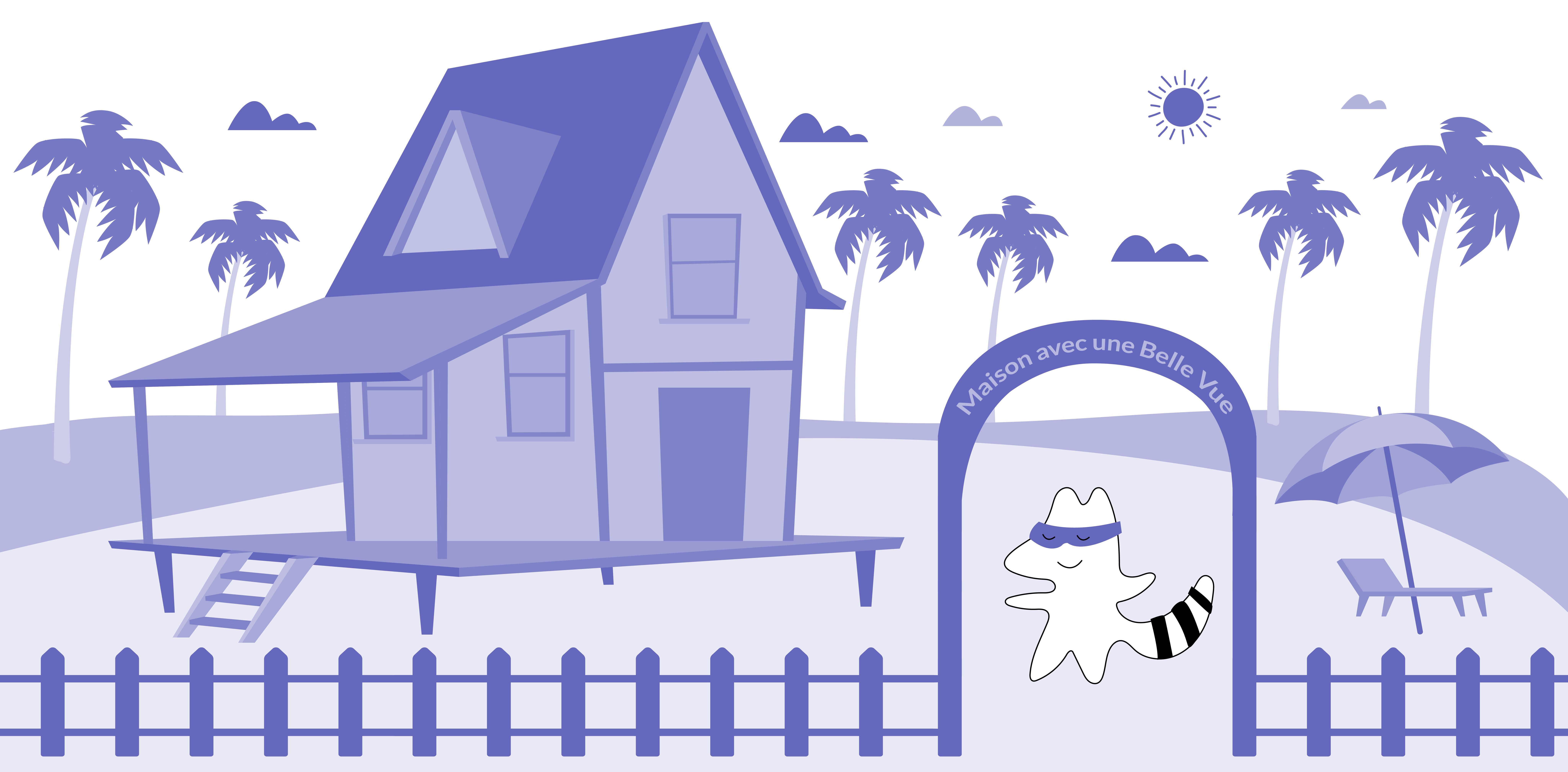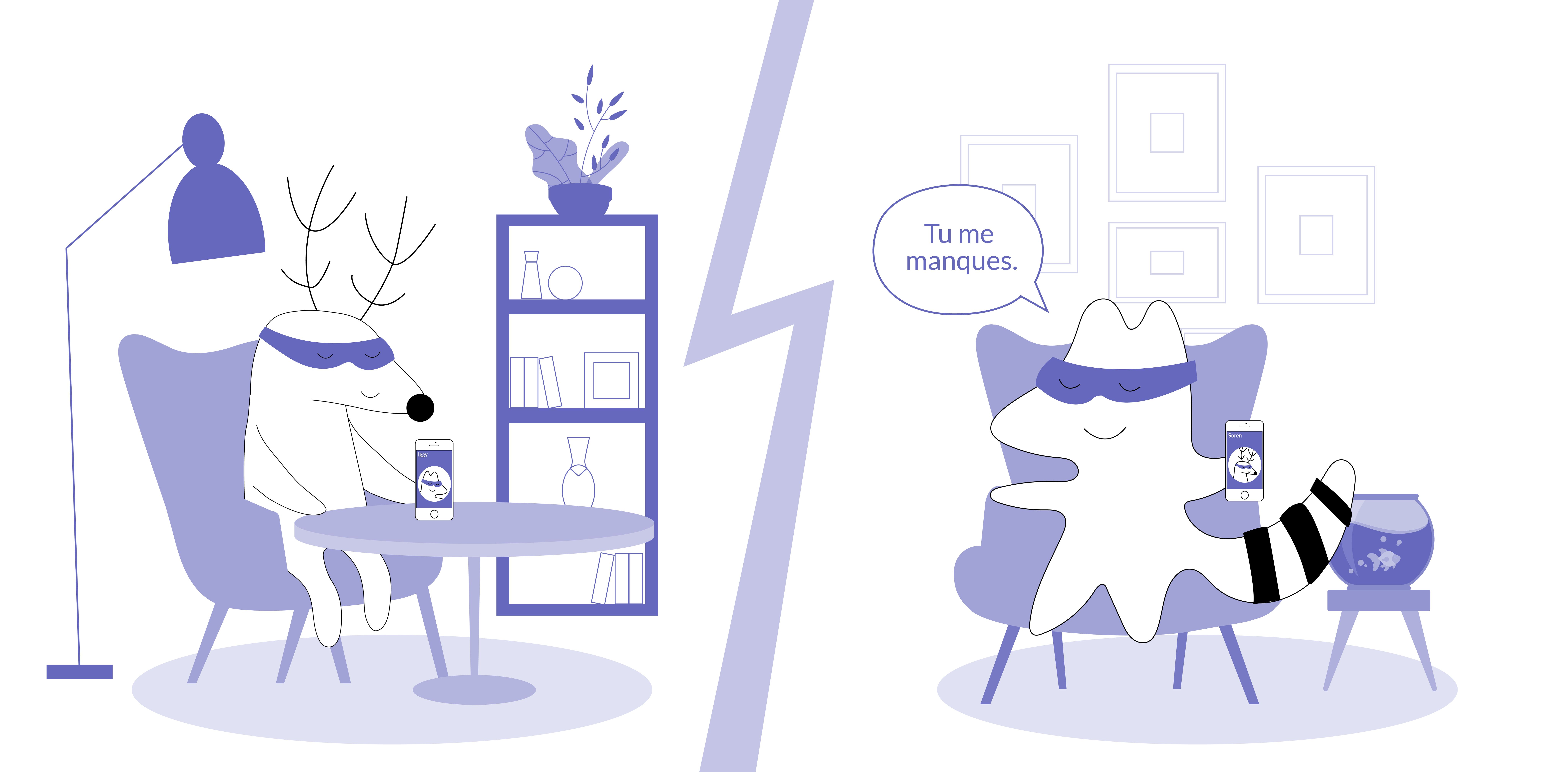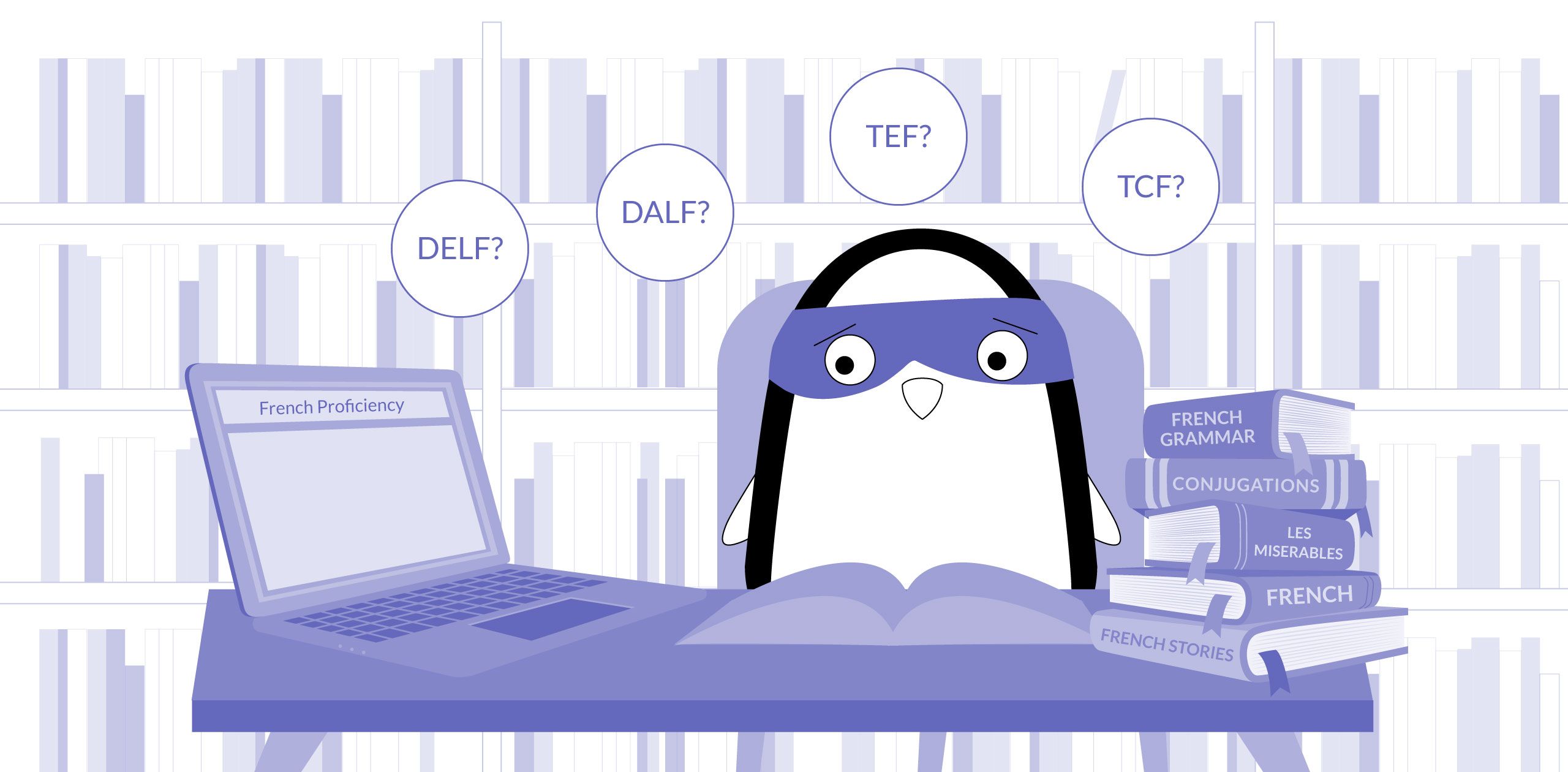
Are you looking to take your French skills to the next level? If so, you may be interested in taking one of the French language proficiency tests known as DELF, DALF, TEF, and TCF. These main French language exams can be taken by non-native French speakers who want to certify their level of language skills.
The DELF (Diplôme d’Études en Langue Française) is the basic level of certification, while the DALF (Diplôme Approfondi de Langue Française) is a more advanced level. The TCF (Test de Connaissance du Français) and TEF (Test d’Evaluation de Français) are tests of general French language ability that are accepted by French and Canadian universities and government institutions.
Which one is right for you, what opportunities can they give you, and why take them at all? In this article, we'll provide you with all the information you need to know about these French exams, including how to prepare for them. Let's get started!
Learn French with Langster
DELF
DELF is the acronym for Diplôme d’Études en Langue Française, and it is a French language proficiency test that examines the basic levels of French as a foreign language. The DELF exam is aimed at non-native speakers of French who want to certify their French skills.
The DELF exam is offered in four different levels according to CERF (Common European Framework for Languages), from A1 to B2.
DELF - Who Should Take It?
You might need to take this test if you want to study in a French university, work in a French-speaking country, or if you simply want to improve your French language skills. Many companies also require this or other French proficiency test diplomas from their employers on positions with the French language.
Depending on the reason you’re taking the test, you should choose the right level of the test. For example, for studying in a bachelor's program in a French-speaking country or if you want to get French citizenship, you need the B2 level. However, DELF is not enough for a masters’ program in French - it requires a DALF certificate.
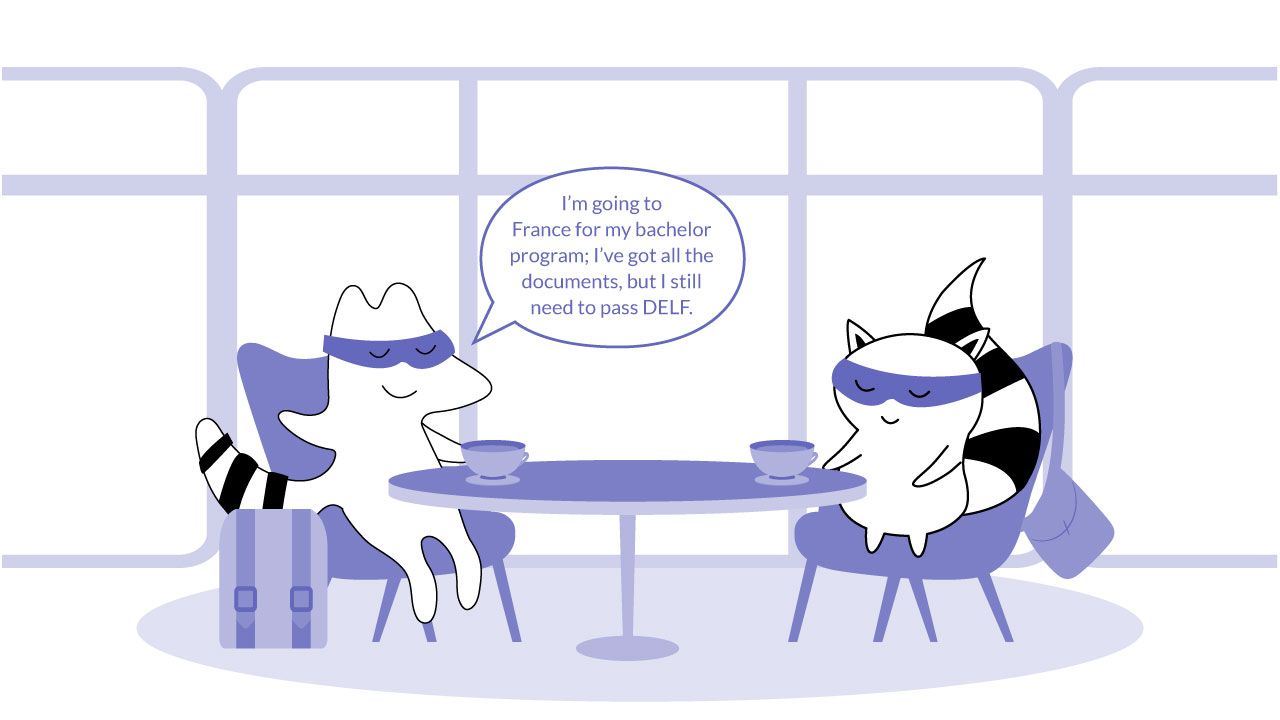
The DELF test is administered by France Education International (France Éducation international or FEI) for the French Ministry of Education and is recognized all over the world.
What Does the DELF Exam Include?
The DELF exam is made up of four different sections: listening, reading, writing, and speaking. The duration of the exam can vary depending on your French level. The listening, reading, and writing sections are all written exams, while the speaking section is an oral exam.
- The listening section includes a series of multiple-choice and open-ended short-answer questions that are based on audio recordings. Speakers’ accents may vary.
- The reading section includes two tests and a number of questions based on this test. Depending on the level, the type of questions can vary.
- The writing section requires you to write about a short prompt. This could be a letter, a book or a film review, or a debate - for B2 exam, the length of the text should be 250 words.
- The speaking section requires you to prepare a short text on a chosen topic, which later opens up the ground for discussion. For this part, you get up to 30 minutes of preparation time depending on the level.
What Is the Passing Score?
The minimum score to pass the DELF exam is 50%, which includes both passing the exam overall as well as passing each section.
The exam is marked out of 100, and the sections are marked out 25, which means you must score 50/100 overall and at least 5/25 in each area.
How to Prepare for DELF?
There is no one-size-fits-all answer to this question, as the best way to prepare for the DELF exam depends on your level of French language skills.
However, some general tips that may help include studying the grammar and vocabulary of the French language, practicing your listening, reading, and writing skills, and practicing your speaking skills with a French-speaking friend or tutor. You can also take mock exams online.
DALF
DALF is the acronym for Diplôme approfondi de langue française, which is the more advanced that measures French proficiency level. The DALF is one of the official French exams that is aimed at non-native speakers of French who want to certify their French knowledge.
The DALF exam is offered in two different levels, from C1 to C2.
DALF - Who Should Take It?
You might need to take this test if you want to study in a French-speaking graduate program, if you want to work in a French-speaking country at a more advanced level, or if you need to prove that you are fluent in French.
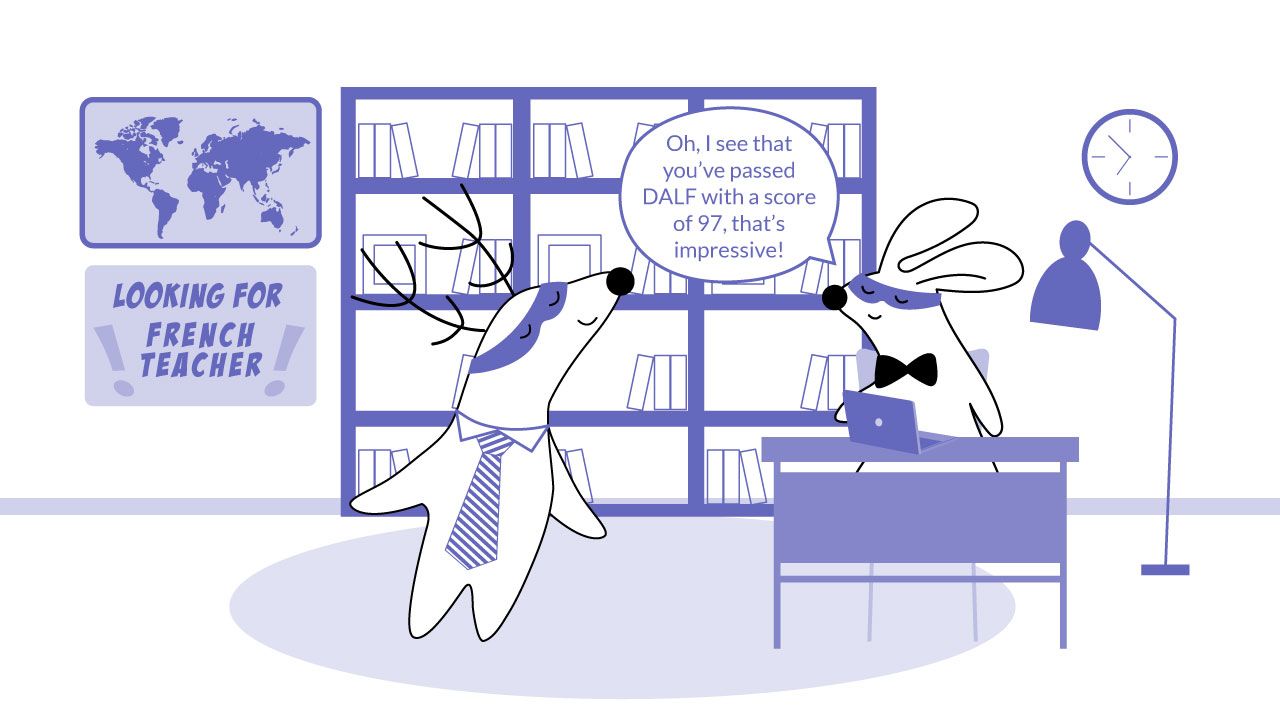
This French exam is administered by the Centre international d’études pédagogiques (CIEP) for the French Ministry of Education and is recognized all over the world.
What Does the DALF Test Include?
The DALF test includes four different sections: listening, reading, writing, and speaking. The tasks vary depending on the level.
- The listening section of the DALF test includes two parts: in the first one, you have to answer a series of questions about a long recording (around 8 minutes), which you can listen to twice. In the second part, you listen once to short radio broadcasts and answer questions based on them.
- The reading section includes different questions about a long text (around 1500-2000 words).
- The writing section includes two parts: writing a summary of the texts you receive and writing a short essay on the same topic as the texts you are given.
- The speaking part of DALF requires you to give a speech on a given topic and answer questions about it later. For preparation, you get 60 minutes and a few documents to prepare a speech about the topic.
The passing score is the same as for DELF - 50/100 for the complete exam and at least 5/25 for each section.
How to Prepare for DALF?
The best way to prepare for this French language test is to practice your French regularly. You can do this by studying grammar, practicing your listening and reading comprehension, and speaking with a French tutor or in a French conversation group.
You can also practice for the DALF test by taking mock exams. There are many test prep books that you can buy as well as plenty of free materials online.
There are also many online and local courses available that can prepare you directly for passing this exam. Be aware that these courses are focused strictly on the test and specific requirements and exercises, so they may not help you improve your overall level of French knowledge.
DALF and DELF - Prices and Dates
The DELF and DALF exams are offered at various times throughout the year. You can find the dates and prices on the official website of France Éducation international.
TCF and TEF
TCF and TEF - The Difference
While these tests are quite similar, there are a few key differences between them.
The TCF is a shorter test, with a duration of 1 hour and 30 minutes. The TEF, on the other hand, is a longer test, with a duration of 3 hours and 30 minutes. The TCF is scored on a scale of 0-499 depending on the level, while the TEF is scored on a scale of 0-950 depending on the type of exam and its level.
The TEF is also more detailed than the TCF. It assesses French language skills in the following areas: listening, reading, writing, grammar and speaking. The TCF only assesses French language skills in the grammar, listening, and reading areas. When taking the TCF, you can also opt for two additional sections: writing (1 hour) and speaking (12 minutes).
Both TCF and TEF tests are available in paper-based and electronic versions.
When to Take TCF or TEF?
Both TCF and TEF can be taken if you want to prove your knowledge of French, but most often people take them when immigrating to Canada or France. Both tests are accepted by the Canadian government and French institutions, but TCF is mandatory if you’re planning to immigrate to Quebec.
Depending on the reason why you’re taking the test, you need to choose the right version of it. There are three versions of TCF:
- general TCF
- TCF Canada
- TCF Quebec
Note that for immigration purposes, both mandatory and optional sections of TCF are required.
When it comes to TEF, there are five versions:
- TEF for studies
- TEF for naturalization as a French citizen
- TEF for the resident card
- TEF Canada
- TEFAQ
Now, which test exactly should you choose?
Choose TEF if:
- you are applying for permanent residency in France or Switzerland
- you are applying for Canadian citizenship
- you are applying to a French school
- you are immigrating to Quebec with TEFAQ
Choose TCF if:
- you want to prove you French proficiency
- you are applying to a French school
- you want to migrate to Canada (including Quebec)
How to Prepare for TCF and TEF?
Both the TCF and TEF are relatively straightforward tests, and there is no specific preparation required. However, it is always a good idea to review your French grammar and vocabulary before taking the test.
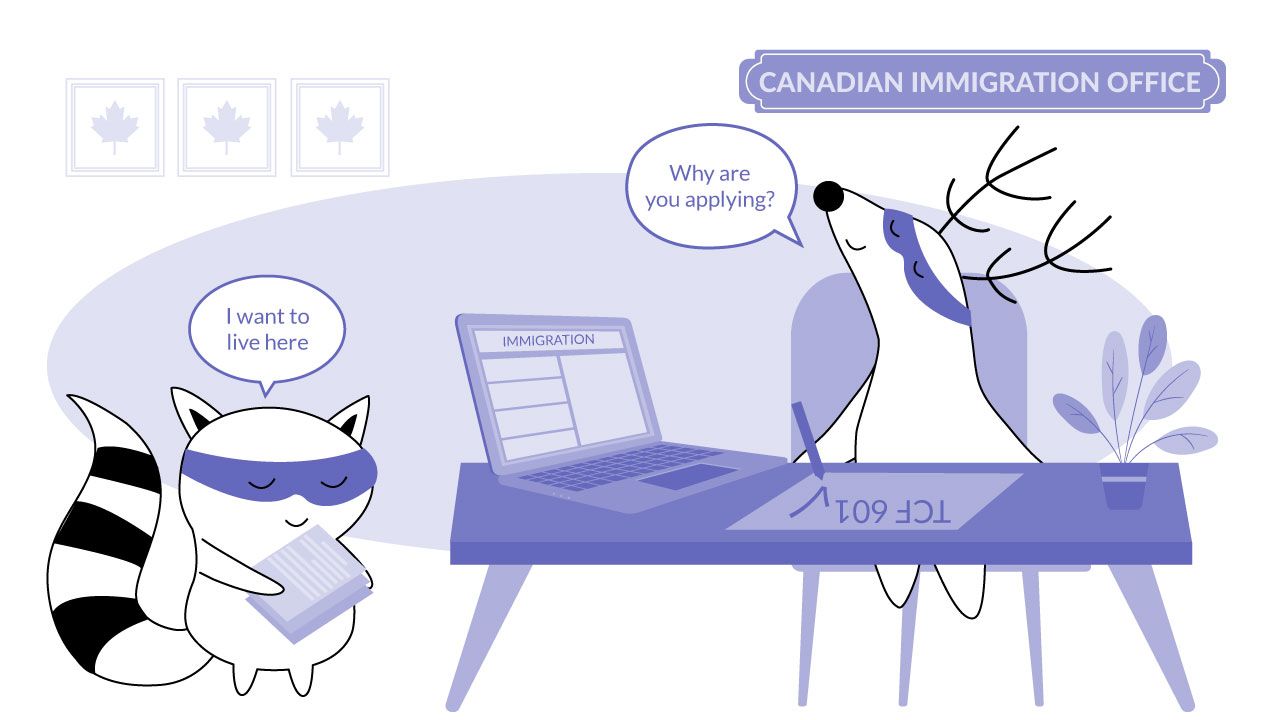
There are a number of resources available to help you prepare for the TCF and TEF. The official websites of the TCF and TEF offer practice questions and a list of accredited preparatory centers. You can also find practice materials online or in bookstores.
Finally, don’t forget to relax and do some breathing exercises before the test. The best way to do well on any test is to stay rested, calm, and focused.
Final Thoughts on French Proficiency Tests
There are a number of different French proficiency tests available, so it is important to choose the right one for your needs. The DELF, DALF, TCF, and TEF are all accepted by the Canadian government and French institutions, but depending on your purpose, you might need to take different French exams.
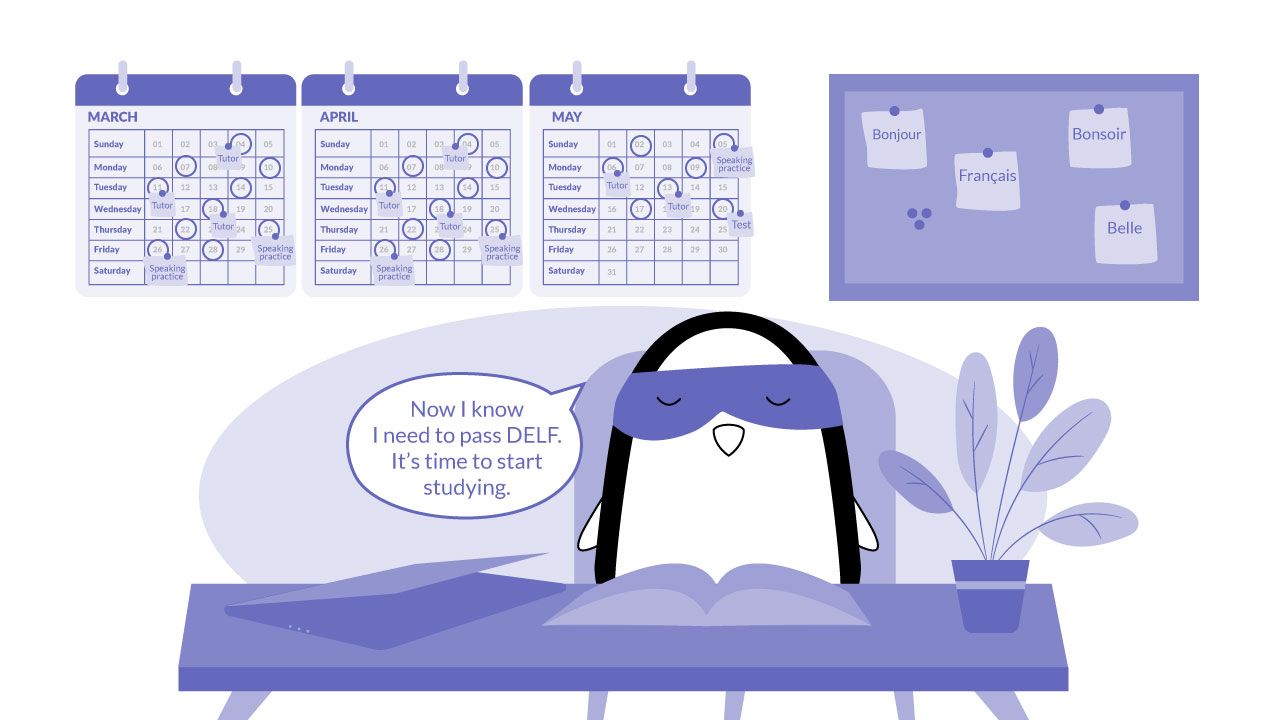
Once you know which French proficiency test you need to take, it’s time to prepare - and by that, we mean not only improve your French skills, but also learn as much as possible about the test. The more familiar you are with the types of questions asked on the test, the easier it will be for you to study and pass.
The best way to prepare for the French proficiency tests is by reviewing your French skills such as listening comprehension, oral expression, reading, writing, and knowledge of grammar structures, and practicing as much as possible.
Fortunately, today, there are plenty of free materials online that can help you get ready and boost your knowledge of French. While some of them, like Langster, might focus strictly on your French skills, others can give you exercises similar to those you’ll take during exams. It’s best to use different materials when studying - this way, you can practice, prepare, and boost your French.
Good luck on your exams!







